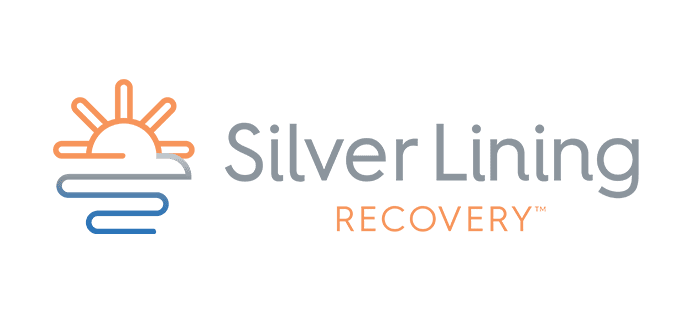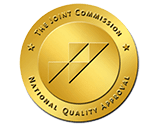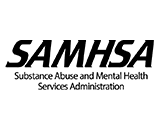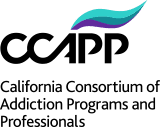We spend a good portion of our time on social media. Knowing that so many people log into their accounts, post, and regularly check their feeds shows companies can reach out to them. Social media can be a useful tool during the coronavirus pandemic to provide addiction recovery services, as well as better understand the mental health of others.
Social Media Collaboration Leads to Addiction Recovery Awareness
Google, Facebook, and Twitter have partnered with the Center for Safe Internet Pharmacies (CSIP) through Tech Together, an online platform to help those struggling with addiction. This website is full of resources related to addiction recovery. Because of social distancing rules, 12-Step groups and other in-person meetings cannot take place.
Tim Ryan, the star of the A&E documentary “Dope Man,” believes forcing those in recovery into isolation during the pandemic can cause them to relapse. With over 1,361,000 members in Alcoholics Anonymous, a lot of people are going to be turning to alternative resources. A study by Harvard and John Hopkins said that 2.5 million adults are using technology right now to aid in their recovery, and that online interventions helped.
The New York Times says that alcohol use has risen up to 25% nationally as there is a lack of support, in addition to excess stress that can trigger drinking. The collaboration of CSIP and social media can provide those in recovery with a single destination to turn to.
Twitter’s Contribution
Tech Together’s website offers a number of technology tools and resources provided by Twitter, Google, and Facebook. Once users find it through these platforms, they’ll discover a large number of resources to help themselves and their loved ones. Twitter offers hashtags like #RecoveryMovement, #OpenRecovery, and #RecoveryWorks to join discussions with others in the same shoes, ultimately facilitating a global discussion around this topic.
Facebook and Google’s Contribution
Facebook offers crisis support over its Messenger tool and Facebook Live sessions. There are also Facebook groups for those with substance abuse disorders. You can use Messenger to send resources to others who do not know where to turn to. The Center on Addiction is using Facebook Messenger to speak to those looking for support as well as training social workers to communicate through the chat service.
Facebook said that Messenger usage has increased by over 50% in countries most affected by the virus. A Google employee, Shawna, says that Tech Together is using Google’s relationships with nonprofits like Transforming Youth Recovery, Young People in Recovery, and the Center on Addiction to collect recovery meeting locations.
Impact of Addiction Recovery Technology During the COVID-19 Pandemic
Anna David, author of “Party Girl,” has been in recovery for over 20 years. She felt like online meetings were more effective for her than in-person ones. She says that she does not have to battle traffic to get a good seat at an online meeting and feels no need for online meetings to end.
David also feels like the meetings are more intimate to her through Zoom. Between early March and late April 2020, Rehab.com has seen a 393% increase in treatment seekers and a 285% increase in providers. These resources are available to those who have never sought out treatment before, but may have now discovered they need to.
University of South Carolina Study
Social media is a useful place where people post about their attitudes or behaviors. Artificial intelligence can be used to go through billions of words to recognize trends in a population’s wellbeing. The University of South Carolina has processed 700 million social media posts since the beginning of March and more than 700,000 news articles about the pandemic. These information resources are used to learn about the human experience during this time.
Their automated text analysis uses a knowledge graph that keeps track of the meaning of words to understand different meanings associated with a particular word. They have created a knowledge-based graph based on terms in the American Psychiatric Association’s Diagnostic and Statistical Manual of Mental Disorders. To understand broader terms, the research team used DBPedia which is a knowledge graph derived from Wikipedia.
University of South Carolina Study Results
The research team’s analysis showed that depression, anxiety, substance abuse, and addiction declined in all parts of the country which was noticeable from the first week of March to the second week. Hotspots of social quality decline occurred in California, Michigan, New York, Virginia, Georgia, and Florida.
This shows that there is an epidemic of clinical depression, growing panic and anxiety concerns, and worsening substance abuse use. Advanced warnings can be beneficial to policymakers and public health officials.
What Is Unknown
It is hard to link physical environmental changes with how humans respond to them like noise levels or brightness. We already have data about how humans respond to environmental threats like a highly contagious virus. The mental health of a person is just as important during these times as we were already facing a decline before the pandemic. Mental health conditions can grow worse if not enough is done during these times.
This study should help policymakers more quickly detect mental illness signs and prepare for any emerging threats. For those struggling with addiction and mental illness, it is important to always reach out to someone. Technology is the key to addiction recovery right now, enabling those in need to connect with the right people, acquire a number of resources, and ensure they are keeping up with their routine.
Using technology to maintain sobriety has been helping many throughout the pandemic. We can help you get started—contact Silver Lining Recovery today at 866-681-0927 to learn more about the treatment options we provide. Located in Huntington Beach, our outpatient care center provides personalized treatment in a relaxing environment. Our knowledgeable and experienced counselors offer therapy through modalities such as EMDR, CBT, DBT, meditation treatment, faith-based treatment, and academic and career counseling.







